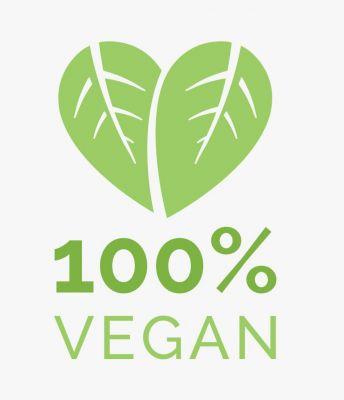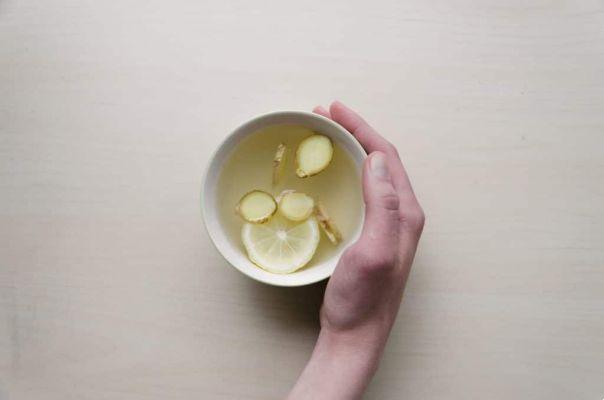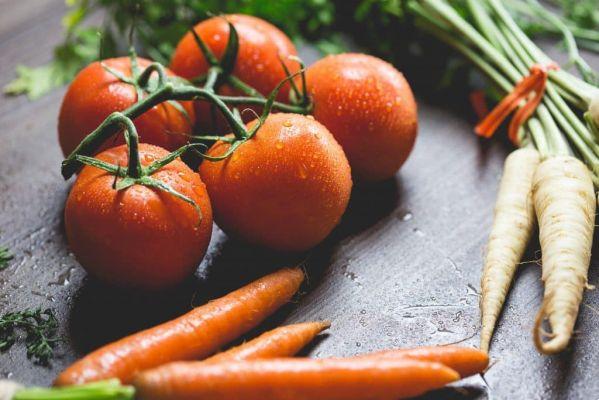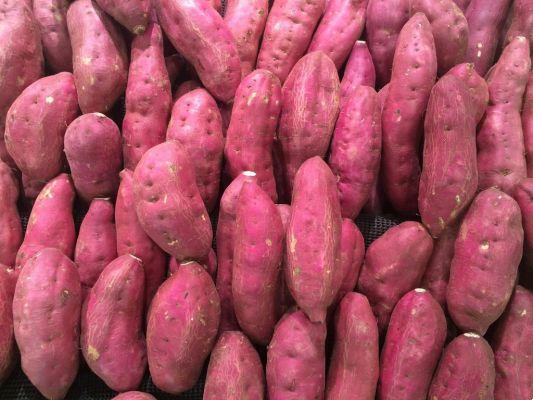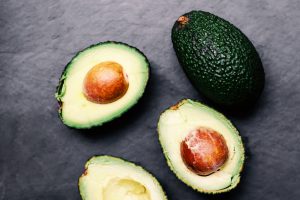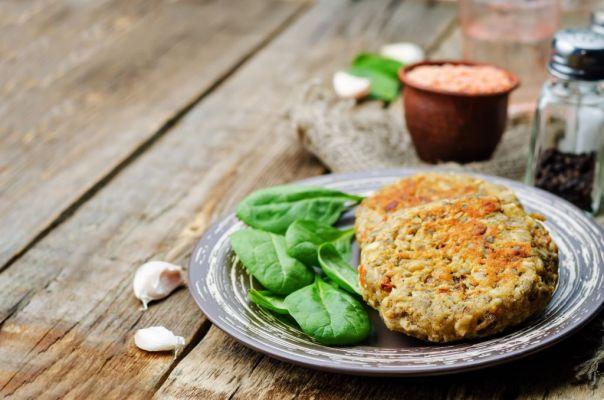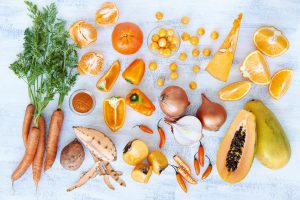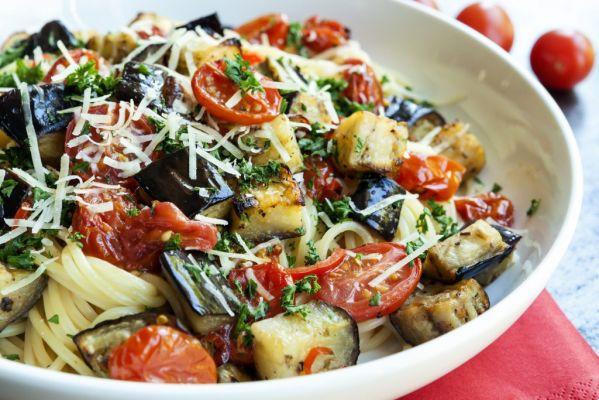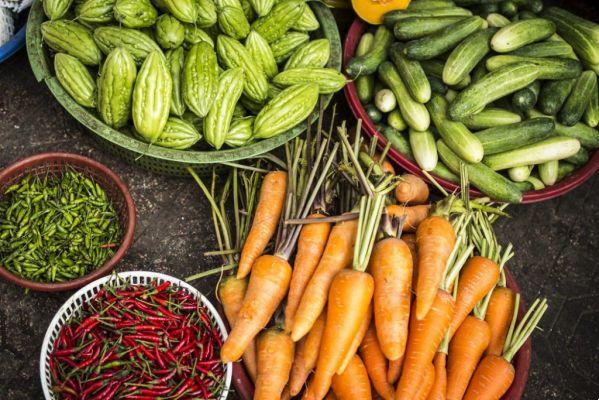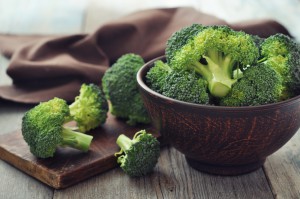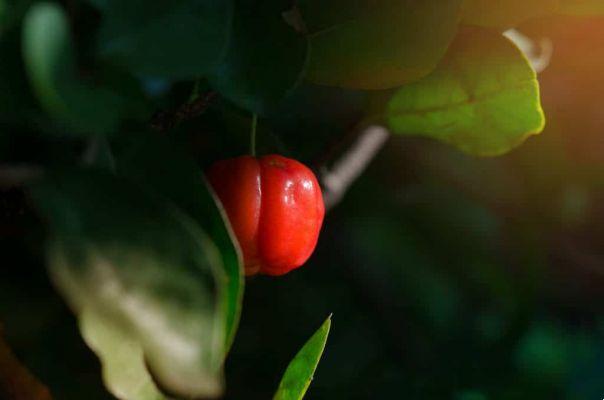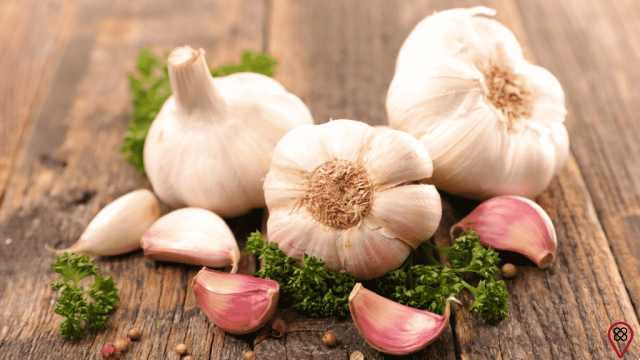The premise that our diet should be balanced and varied is unanimous among health and food professionals, which is why the consumption of some vegetables should be done with moderation and attention. The danger in these cases is precisely in the excess of nutrients that some vegetables contain. When ingested in the right amount, they bring us numerous benefits, but if consumed always or in moderation they can even be harmful to our body. Substances such as iron, potassium, calcium and even some vitamins, if consumed in large quantities, can cause kidney and intestinal problems, stomach discomfort and even dryness of our skin.
It is worth remembering that, as each body has different characteristics, quantities and portions vary greatly. That is why a healthy diet should always be guided by a nutritionist, who will observe each of this information when directing the treatment.
Before listing some points that deserve attention when consuming each of these foods, I also emphasize that this food category is essential in our diet, and should never stop being ingested. The intention here is to show that, as miraculous as these nutrients seem to be, they adapt differently to each organism, and contain properties that must be taken into account at the time of preparation.
Canned or pickled vegetables
Despite being practical for our daily lives, these vegetables end up losing many nutritious substances when they are preserved. To increase their shelf life and keep them edible for longer, industries end up adding salt, sugar, preservatives and even acids. Due to this excessive manipulation, food ends up losing its nutritional values and we, even without knowing it, ingest a high amount of substances, often harmful to health (especially in the case of hypertensive and diabetic patients).
Therefore, give preference to fresh, organic vegetables that have undergone the least possible industrial intervention. In addition to being tastier, they can also be much more effective in taking care of your health and well-being.
Lettuce
This leaf is rich in fiber and legumes, and it certainly brings many health benefits because of the calcium, iron, phosphorus, potassium and sodium it contains. Not to mention the presence of vitamin B1, which helps to strengthen the immune system.
The danger in eating lettuce is actually in the care we need to take when washing the leaves. As a soil-grown vegetable, lettuce heads are often contaminated with the fecal coliforms used to fertilize the land. In addition, the shape of the leaves also forms an environment conducive to the retention of microorganisms that cause intoxication.
Therefore, always pay close attention to the hygiene of this vegetable. First, cut the base of the lettuce head, as this is where most of the microorganisms and bacteria that are harmful to health are. Then, soak the leaves in water for at least 5 minutes. Wash them with plenty of running water and only then consume.
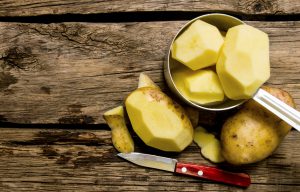
French Fries
A member of the group of starchy vegetables, made up of roots and tubers, the potato is one of the most caloric vegetables in our diet. However, that doesn't mean it shouldn't be consumed. Despite the high glycemic index, potatoes are a great source of vitamin C, potassium, starch and carbohydrates, making them an excellent source of energy.
Especially for diabetics, it is important that potatoes, as well as cassava, yams, yams and manioc, are consumed in moderation. Sweet potatoes, for example, can be a great substitute in these cases.
Eggplant
Eggplant is a vegetable rich in minerals and vitamins. It contains vitamins A, B1, B2, B3, C, calcium, iron, potassium, magnesium and phosphorus, which are very important for our health and well-being.
What deserves our attention in this case is the large amount of phosphorus that the eggplant contains. This, in most cases, is not harmful to health, as our body is capable of releasing all substances in excess. However, people with kidney problems should pay close attention to the amount of phosphorus ingested. If this is your case, consult a professional to find out what amounts are right for your body.
Carrot
Like other legumes and vegetables, carrots are rich in fiber and potassium. In addition, it is an excellent source of beta-carotene, which helps with skin tan, has antioxidant action (which prevents aging and increases immunity) and reduces the risk of eye diseases.
The problem with carrots is that, if consumed in excess, it can leave the skin with a very yellowish tone. In addition, it has a large amount of potassium and sodium, minerals that need to be consumed in moderation to avoid kidney problems. The excess of these minerals also makes hypertensive patients need to be extra careful when eating carrots.
Pea
This legume is an excellent source of protein and is rich in potassium, vitamins A, C, B1 and B2. What we must take into account here is that this is a vegetable that contains phytate. This substance, also present in rice and corn, is an acid that binds to various minerals, such as zinc, calcium, potassium, iron and magnesium, and can greatly reduce the absorption of these nutrients.
This means that, even though the pea has several important nutritional substances for our health, one of these acids ends up preventing our body from absorbing all the minerals present in the vegetable.
In the case of patients with renal insufficiency, attention should be redoubled. As the human body digests animal proteins better than vegetable proteins, peas, as well as beans and soy, should be consumed in moderation. Remember that each organism is different from the other, so only a doctor will be able to determine the recommended amount of consumption for each one.
For those who suffer from gout (gouty arthritis), peas can also be harmful if not eaten in moderation. Because it is rich in protein, it can trigger the symptoms of the disease and considerably increase the pain.
Spinach
This vegetable is rich in vitamins A and C, folic acid and potassium. In addition to them, spinach also has beta-carotene (the same as in carrots) and lutein, a hormone responsible for the colorful pigmentation of our eyes, present in the skin, muscles and, in the case of women, in the breasts and cervix.
In the case of this vegetable, almost the same thing happens as with peas. Spinach contains many oxalates, substances capable of inhibiting the absorption of minerals such as iron and calcium. So, even though spinach is full of nutrients in its composition, our body ends up not being able to ingest all that amount. As a consequence, a lack of iron and calcium can also help in the formation of kidney and bladder stones.
Nabo
This vegetable is a great source of vitamin C, calcium, potassium and low-calorie fiber, which are very useful in low-calorie diets. In addition, turnip is part of the cruciferous family, like cabbage and broccoli, and contains anti-cancer proteins such as sulforaphane and selenium.
These proteins, in turn, are released in large quantities during chewing, so some nutritionists recommend that these foods be cooked in little (or sometimes not at all). However, for patients with thyroid disorders, the ingestion of turnip before cooking can be harmful to health. This is because the vegetable has goitrogenic substances, responsible for blocking the absorption of iodine by the thyroid.
Two other important factors deserve our attention when including turnips in our diet. The first is the way of preparation, as most cooks end up discarding the leaves of the food, not knowing that this is the most nutritious part of the vegetable. In addition, turnip also has characteristics that can cause flatulence.
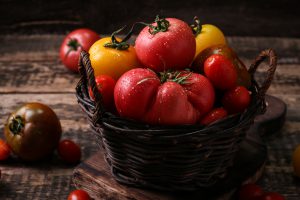
Tomato
Tomatoes are one of the most common vegetables in the Spanish diet and contain very important characteristics for our nutrition. The presence of vitamins A, C and the B complex help in the health of the eyes, skin, heart, collagen synthesis and still take care of our mental and emotional health. Potassium, phosphorus and magnesium are responsible for the proper functioning of the heart, maintenance of bones and teeth and prevention of cramps and migraines. In addition to these nutritious substances, tomatoes are rich in lycopene, an antioxidant that rejuvenates and helps prevent cardiovascular disease and prostate cancer.
However, in the case of those who suffer from gastritis or stomach ulcers, consumption of this food needs to be done in moderation. That's because it can irritate the gastric lining and raise uric acid levels, causing heartburn and poor digestion.
Bell pepper
Rich in vitamins A, C, calcium, iron and phosphorus, bell peppers are great foods for our nutrition. In addition to the low calorie content, they still have antioxidants and are good cell protectors.
However, like other vegetables in the belladonna family, bell peppers have a high potential to cause inflammation. It also contains a substance called solanine, which (in very rare cases) can trigger spasms and convulsions.
As you can see, none of these foods is a health villain when consumed consciously. On the contrary! They can be our greatest allies when it comes to improving health and well-being, or conquering the desired body. According to the WHO – World Health Organization – at least 60% of deaths in the world could be avoided if people adopted healthier eating habits. Also according to the WHO, the ideal is for each of these people to consume about 400 grams (5 servings) per day of vegetables.
But then, how do I know if vegetables are doing me good or bad? The key to this is balance. Try to ingest adequate amounts of any food, because excess is always harmful. And remember: the more natural, without preservatives or pesticides, the better allies the vegetables will be for your health. Always look for foods that have undergone minimal chemical processes, as most of these preservative substances end up reducing (or even eliminating) the nutritional characteristics of food.
Text written by Laís Mori from the Eu Sem Fronteiras Team



